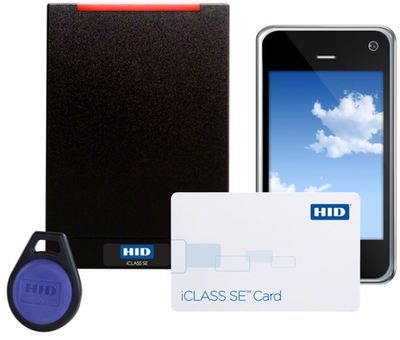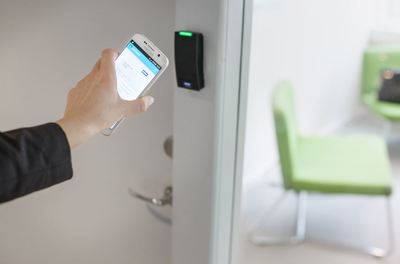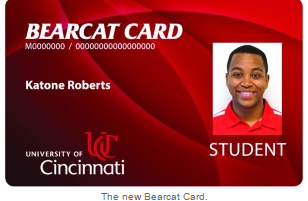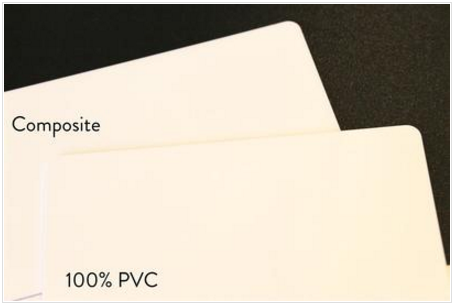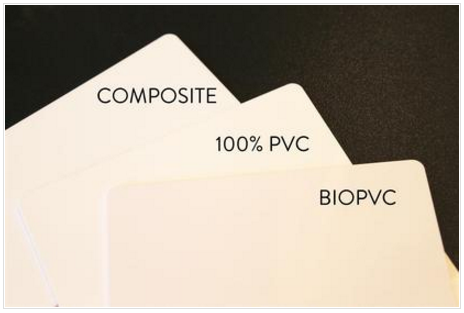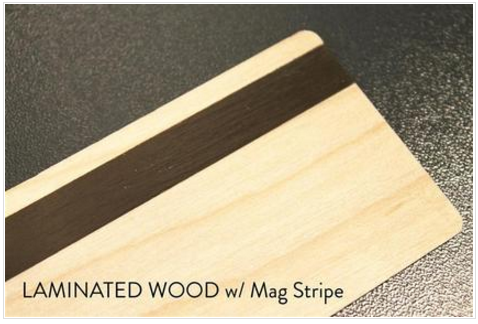|
Check out the latest ColorID & CR80News joint article series below or by clicking the following link. Pick a card, any card / A definitive rundown of cardstock materials and considerations. "Another way to tell if you have a composite cardstock is by bending a card back and forth," says Brooks. "Regardless of how many times you bend a card back and forth it should not tear in half as a PVC card will." Quantifying durability is a challenge, but lifespan can give an indication. "One manufacturer's testing shows between 3 and 8 times longer life than PVC for their different composite formulations," he says. Play to your hand Understandably, there are cost differences between the various materials as well, adding another layer to the decision-making process. "Cost differences can vary depending on the manufacturer and the formulation they use for their composite material," says Brooks. "On average, a composite card will cost twice as much as 100% PVC." Cost and user wear and tear aside, a university has to print its cardstock. This is yet another factor to mull when selecting the material. "PVC cards are very well suited for direct-to-card (DTC) type plastic card printers, while Composite cards are better suited than PVC for Reverse Transfer printing and overlaminating," explains Brooks. "This is due primarily to the higher amounts of heat that are generated from these processes." "PVC cards tend to warp easily in high-heat conditions, and although it's possible to print lamination on PVC cardstock, I don't suggest this route," Brooks adds. There are a number of considerations that a campus card office must navigate when delivering a robust and functional student credential. For instance, choosing the right printer, card technology and even the proper printing method are all vital concerns, but there is another decision that must be made that precludes each of these factors. The cardstock itself comes in a number of different flavors, each carrying benefits and limitations. As ColorID's project manager, Todd Brooks explains, selecting the right card material is a decision worth contemplating. Ante Up Campuses actually have options, and Brooks offers his list of things to things to consider. "A university must first consider the technologies it needs in its card," says Brooks. "Options include contact smart card chips for logging onto computers, contactless and prox chips for physical access, and magnetic stripes for payments and other uses." Brooks explains that the type of technology deployed on the card will affect what composition - or card material - you choose. "If you utilize a contact or contactless chip, I recommend a Composite or PC (Polycarbonate) cardstock because of how durable those materials are," Brooks explains. "Mag stripe users generally assume PVC is sufficient, however Composite cardstock will provide a much longer life span and thus a lower number of reprints." Despite the overwhelming popularity of PVC and Composite cardstock, there is an array of material options out there today. Brooks provides his top materials in order of popularity:
When it comes to telling the difference between the various materials, particularly PVC and Composite, some have questioned if there is a difference at all. Brooks explains that each card material does have its own characteristics. Plastic cards are made from laminated sheets of plastic, and in the case of PVC cards, each of these sheets are 100% PVC material. For Composite cards, some of the sheets are made up of a polyethylene terephthalate (PET) polyester resin material. "Depending on the formulation needed (60/40, 80/20, etc.), that will adjust the type of layer used and thickness of each layer," says Brooks. "Regardless, composite cards can dramatically increase the life of the card and are fair superior to 100% PVC cards." 'Its possible to tell the materials apart in other ways as well, and depending on the university desired specifications, this may be worth considering. "With PVC cardstock, you shouldn't be able to see the layers on the edge of the card and it should look like one solid core piece of material," explains Brooks. "Also, when handling a PVC card you should be able to snap the card in half after bending it back and forth over a dozen times or so. Likewise, Composite cardstock has its own telling features. "You may be able to see the layers," says Brooks. "It depends on if your manufacturer uses the same color tone materials or if they use the standard coloration the materials come in." As Brook explains, the color of the layers does not impact with the durability, as Composite cardstock will always be more durable than PVC. Shuffling the deck Let's lay all the cards on the table. Different card materials, by their nature, are better suited to certain deployments than others. Here's a definitive rundown. "Composite cardstock, regardless of its blend, will not be affected by severe cold or heat conditions, while at the same time its life span is very good at 4 or more years," explains Brooks. "The only con is that some Composite materials render blank, white cardstock more of a tinted color instead of true white." Alternatively, Composite's close competitor, 100% PVC cardstock is not so robust against extreme elements. "Under high heat or cold conditions PVC can became overly flexible or extremely brittle," says Brooks. "The average life span of a PVC card is lower at two to four years." Polycarbonate cardstock, PC for short, is a relatively new option to the masses, according to Brooks. "Polycarbonate is stronger than Composite, however you will need to utilize a Reverse Transfer or Laser Engraving printer, as Direct-To-Card printing will not work on this card surface," says Brooks. Even smaller universities routinely issue tens of thousands of cards. That's a lot of plastic. While there are options for the environmentally conscious campus, these materials have been not been used to wide degree on campus and care should be taken to learn about their limitations before selection. The first is recycled cardstock, which as Brooks explains, is exactly what it sounds like. "Semi-used or non-spec'd cardstock is shredded and reused for this stock," he says. "It's similar to 100% PVC in terms of wear and tear, though the coloration is not white, it features more of a grayish look." Another green option is biodegradable, or BIOPVC cardstock. "Biodegradable cardstock is essentially a 100% PVC cardstock but the polymers that bind the PVC granules together are biodegradable," explains Brooks. "The PVC will never decompose, but the card will revert back to a granule state after 5-7 years in the ground." Delving further into the biochemical realm, there's PLA cardstock. Short for polylactic acid, PLA cardstock is a plastic material derived from cornstarch. "Corn based cards are not 100% bio-gradable, they're estimated around 85%. Normally, the core of the card is PLA and the outside shell is PVC," Brooks explains. "Wear and tear is similar to both BIOPVC and 100% PVC, but is also affected by severe hot and cold conditions." But if science isn't your thing, and you have a flair for the old school, there's always wood. Sure they're flammable and not exactly the best option for regular, daily student use, but the wood card is a niche option nonetheless. "Believe it or not, wood cardstock is available in both laminated and non-laminated versions," says Brooks. "We do not suggest utilizing wood cards inside your ID printer because of the heat the printer generates. Wood cardstock does, however, make a great short-term ID for conferences or special events." Turn up trumps While there are a number of factors to consider when issuing a quality student credential, selecting the proper card material is one of the foundational decisions that must be made. With a wide variety of material options - each with their own set of strengths and weaknesses - it can be easy to simply flip a coin and go with the first material you see. But cost, durability and environmental issues of plastic credentials make this decision one worth contemplating.  About ColorID, LLC Every year, ColorID assists more than 1000 colleges and universities and their project managers personally oversee 700 custom projects each year, including many small and large recarding projects. ColorID offers best-in-class products and solutions, including: contactless, smart and financial cards from every major manufacturer, multiple ID printer platforms; transaction and point-of-sale software and hardware, a variety of handheld devices for identification and tracking applications and biometrics solutions, including fingerprint and iris readers. The company’s manufacturing partners include: Iris ID, HID, Fargo, Datacard, CardSmith, Gemalto, Zebra, NiSCA, Evolis, Allegion, Aptiq, Magicard, Brady People ID, Integrated Biometrics, Oberthur, NBS, Vision Database Systems and many others. Contact ColorID at 704-987-2238 or toll free in Canada and the US at 888-682-6567. Visit ColorID on the web at: www.colorid.com or email ColorID at [email protected].
0 Comments
Your comment will be posted after it is approved.
Leave a Reply. |
Categories
All
Archives
July 2020
|
WE'RE HERE TO HELP.
|
ColorID has spent over 24 years serving the ID Industry with top-level sales and support to build the ultimate trust with every customer.
|
|
|
|



